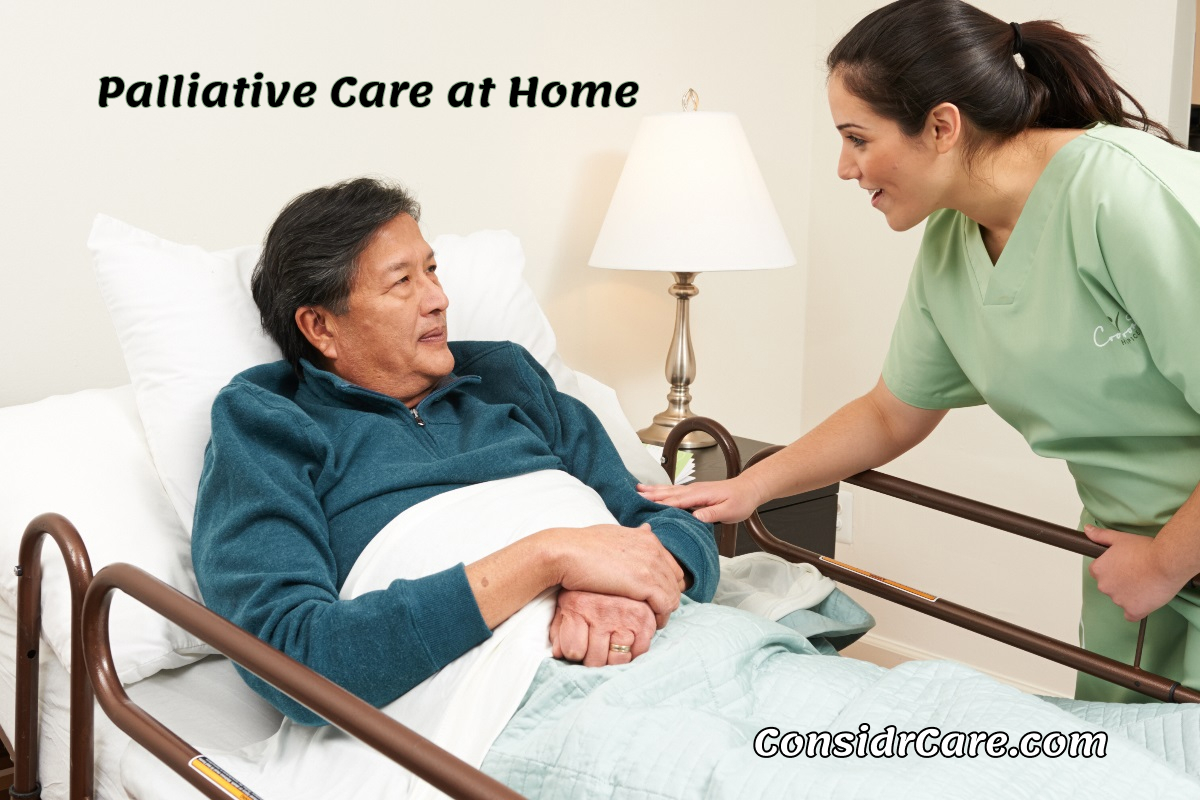What Is Palliative Care at Home? 5 Stages of In Home Palliative Care!
Has your loved one been diagnosed with cancer, lung disease, kidney failure, or any other severe illness? If that’s the case, they might find it annoying going to the hospital and staying there to alleviate symptoms like pain, breathlessness, etc. They can safely stay at their home with Palliative Care.
People with a severe and life-limiting illness can receive specialized medical care called 'Palliative Care. Palliative care can treat pain and other symptoms and help the patients and their families to understand the health condition and required treatment.
Home Palliative care will assist you in managing the difficulties of living with a lethal disease. In addition, it adds up extra support to manage symptoms, emotions, and personal care and improves the quality of life.
Who Can Have in Home Palliative Care?
Palliative care is available to patients at any phase of their illness once an incurable diagnosis has been made. It can benefit people with heart Failure, Chronic Obstructive Pulmonary Disease, Dementia, Parkinson's disease, etc.
Palliative care includes care for those who are getting close to the end of their lives; this is also referred to as end-of-life care.
Additionally, palliative care may also be able to help your friends, family, and caregivers. They might be able to speak with experts who can provide both emotional and spiritual support.

5 Stages of Palliative Care:
The following 5 stages of Palliative care at home will help you understand caregiving at each phase of terminal illness and to make sure that the appropriate level of care is available when needed.
Stage 1: Health Stabilization and Creating a Care Plan
Palliative care can begin at any stage however in most cases it is initiated as early as a person learns that he/she has a deadly disease. To ensure the safety and stabilization of the patient, a medical professional is engaged along to create an effective care plan for the patient.
Expert healthcare supervision makes the care journey beneficial by making sure that the care plan is appropriate according to a person’s needs. Additionally, medical professionals can monitor the care plan throughout the palliative care journey and can observe if anything needs to be changed.
Stage 1 of palliative care includes;
- The ongoing and prospective course of treatment
- The future progression of the illness
- Required medication
- Symptom relief
- Patient’s care preferences (Stay, Therapy, etc.)
In the meantime, the physician ensures that the patient maintains the greatest level of independence feasible. Whether a patient wants to stay at their home or in a care home, all aspects of care needs are accessed accordingly.
If a patient wants to stay at their home, medical professionals are responsible to advise about In-Home Caregivers and nurses, and the essential equipment required for treatment at home. This will make mobility and care plans easier for the patient to adapt.
Stage 2: Emotional Preparation Regarding Unstable Health
If a patient’s condition is unstable and he/she is experiencing worse symptoms, the palliative care team promptly reviews the care plan and makes the necessary changes to make the patient feel at ease.
The patient and their families are given emotional and mental assistance during this period of time. The palliative care team monitors everything and assists everyone to get ready for whatever may happen.
Anything including setting up a safe environment for people to talk about their emotions with trained therapists, or psychologists, attending religious services (if applicable), and engaging in recreation to control any emotions, including depression and anxiety.
Stage 3: Switching to End-of-Life Care
When a patient’s health starts to decline and bodily functions get worse, the palliative care team reviews the treatment plan and switches it to end-of-life care to manage the serious emerging medical problems.
Caregivers ensure that the patient feels comfortable and gets the best support. Prescribed medical treatment is given for managing symptom relief and emotions.
Woefully, a lot of people in this stage of their illness only have a little time left to live (a few weeks/months). Loved ones who are directly impacted by this may experience severe distress, as well as their family. Both must get the necessary mental, emotional, and spiritual support to help everyone manage their feelings in this unfortunate time.
Stage 4: Symptom Management, Subtle Care
In this stage of palliative care, the priority is to make sure that the patient remains comfortable. Terminal care includes significant physical and medical care no matter where the patient is staying.
The patient could feel the physical symptoms listed below as they progress through palliative care:
- Being confined to bed
- Serious mobility problems
- Reduction of appetite
- Swallowing issues with drugs and solid food
- Any serious condition that requires regular medical treatment
Along with medication, the palliative care team will place a strong emphasis on making the patient's and family's quality of life better with emotional and spiritual support as part of the end-of-life care plan.
Stage 5: Support for Loved Ones
This is the final stage of palliative care and the patient with a terminal illness has now passed away. Family, loved ones, and caregivers might suffer a great deal at this time.
In this stage, the care plan focuses on supporting family members, friends, and caregivers through various bereavement services like:
- Management of emotions through specialized support groups
- Spiritual assistance
- Psychological assistance
Benefits of Palliative Care in Home:
- Prioritize patient’s preferences and decisions
- Assist the patient and their family
- Illustrates possible treatment options
- Raise the standard of living with a personalized care plan
- Offers pain relief and symptom management
- Decrease annoying hospital visits and stays
- Provides necessary physical, emotional, and spiritual support
Palliative Care-Final Words:
Home palliative care can benefit patients and their families with an extra layer of physical, emotional, and personal care. Caregivers make your life easier with the required level of support and assistance.
Home is the comfort zone of every person, so you don't have to prolong your hospital stay. Considracare provides necessary Personal Live-in Care for your loved ones and improves the quality of life by prioritizing one’s personal needs.








